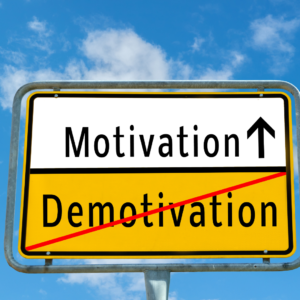Volunteer building a better life
Altitude sickness, contaminated water and isolation are just some of the issues Scott MacDonald will face in the next five months in the name of professional development and helping others.
The 31-year-old engineer has embarked on a volunteer expedition to the remote region of Humla in the north of Nepal, where his priority will be to improve villagers’ access to clean water.
Preparations for his departure have included stocking up on water-filtering devices and keeping fit so he can handle the rugged, mountain conditions. However, one aspect of getting ready for the trip has had him in a bind.
“There are food shortages where I’m going, so it’s always a question of do I eat heaps before I leave and get a bit of a fat belly to live off or do the opposite and start eating less and acclimatising myself,” says the Melbourne-based employee of Parsons Brinckerhoff, one of the world’s leading planning, environment and infrastructure firms.
MacDonald, who grew up in Geelong and studied at Deakin University, anticipates getting just two meals a day and there will be little or no variety.
“That’ll be one of the challenges, physically. Apparently the last guy who went lost about 10kg and I only weigh about 70kg, so I’m in trouble if I lose [that much weight].”
Engineers Without Borders, a not-for-profit development organisation, is organising and funding the trip. It links engineers with disadvantaged communities in Australia and overseas so they can pass on their knowledge and resources to help villages at a grassroots level. The focus is on improving access to clean drinking water, energy, basic infrastructure and sanitation.
MacDonald has about nine years’ experience as an engineer and says it is a perfect phase in his career to go to Nepal.
“For the first few years of work I was always saving up to go for a holiday for a couple of years or travel for a couple of years. After I came back from that I got rid of the backpacking bug and started looking for a volunteer position based somewhere where I could apply some of my skills,” he says. “It’s probably a good time in my career. I feel like I know a bit and I will probably have something to pass on.”
The destination provides added incentive. “People have said how great Nepal is. [And] I enjoy the outdoors, I do a bit of hiking and mountain biking, so in terms of location, Nepal appealed to me,” he says.
Projects on the agenda during MacDonald’s five-month stint include assessing the existing water infrastructure and trying to set up a wind turbine.
“It’s a bit of a loose description because it’s just about helping out where you can,” he says.
MacDonald believes the types of projects required in Humla will be a good fit for his experience.
“The last five years I’ve been in the water industry or water and waste water, so pipelines and pump stations and sewage mains and water mains and all that kind of stuff. So this position is in line with what I do day-to-day to some degree.”
His tasks will include fixing and maintaining existing infrastructure and investigating possible water systems for villages where people still have to walk to the river to collect water by hand. Water quality is another issue MacDonald will explore.
“They’ve had a few issues with bugs in the water making people sick because there’s heaps of livestock around. People drink in the water and die next to the water, which then contaminates it.”
While he will head to Humla with little more than the pack on his back, one must-have for MacDonald is an ultraviolet water filter that will cut his risk of drinking contaminated water. Parsons Brinckerhoff has given MacDonald six months’ leave without pay to enable the trip to proceed while also helping with equipment.
“They’ve actually been pretty supportive of me. They bought me a GPS that I’m going to donate to the village when I leave, and they bought the UV water purifier.”
Fitness has been a key element of MacDonald’s preparation. His Humla base, which sits about 3000m above sea level, is a six-hour hike through the Himalayas from the nearest airport. He will be expected to work in about a half-dozen remote villages.
“It’s up to a week’s walk between villages so I’ve been trying to go on treks whenever possible just to get a bit of endurance.”
The work aside, MacDonald is looking forward to experiencing the Nepalese culture.
“I’m basically living in the Himalayas about a day-and-a-half’s trek from Tibet. There are no Westerners there, it’s not on the tourist track, so I suppose I’m seeing life pretty much unchanged over the last few hundred years other than a few solar panels.”


